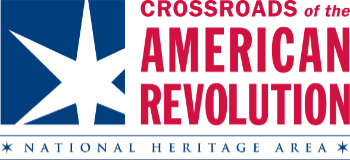Biography People
James Morgan Full Biography
I was born in 1734 in South Amboy, Middlesex County, New Jersey into the family of Charles and Abigail Morgan. I married Margaret Evertson on June 27, 1754 and about that time established a stoneware pottery at Cheesequake. Margaret and I had a total of nine children.
When the Revolution broke out I was first an ensign and then captain of a company in the Second Middlesex County militia regiment. My family served enthusiastically, but we also suffered much. The militia system was based on geography, so my company consisted of boatmen and farmers who lived near each other and were neighbors, friends, and family. My son Nicholas was my First Lieutenant and his brother, James, Jr., was a private. In 1777 we captured and dismantled the brigantine, Ann and May, and its valuable cargo of sugar, wines, nuts, and figs.
Towards the end of the year 1777, I was in an engagement in which many men were taken prisoner by the British at Cheesequake. I escaped death or captivity through the brave exertions of my son, James, Jr. In his effort to protect me, James received a blow to his head and face which disabled him for a time and left a large scar that he carried throughout his life. He was carried off and kept for nearly a year as a prisoner to the Old Sugar House in New York City, a notoriously bad military prison where many died, before being exchanged for a British prisoner. After his release, he returned to duty in my company and then served in a company of State militia, under his future father-in-law.
In March 1778, I was made responsible for two “Negro” men, slaves, who came to South Amboy from Staten Island. One was a 16 year old sturdy young fellow named Joe and the other, also a sturdy fellow, about 60 years old named Jack. Both were tall, one just under and one about six feet. I had custody of them and feared they might run away. I was told they belonged to someone in New Jersey, so I placed an ad in the newspaper asking their owner, or owners, to apply to me and prove their ownership, so they could pay the charges for their care while I had them and then take them away.
When the British army that occupied Philadelphia between the summer of 1777 and June 1778 left the city to march across New Jersey to New York, General Washington needed information to help him plan his movements. My assignment was to send him intelligence regarding British activity on the northeastern New Jersey shore where the British were headed to cross over to New York. From my plantation on a bluff overlooking Raritan Bay I had a good view of the bay leading to New York harbor.
Two days before the Battle of Monmouth on June 28, I wrote the General a note informing him of British ship and boat movements on the coast. I had trouble sending him information due to a lack of horses. In another note that day, I told him that I had followed his order to tear down bridges and was watching ship movements from the shore. I heard from a horseman that the enemy was at Freehold in full body. Again, I told the General I needed horsemen to send out with messages.
The day of the battle, I wrote him describing the British ships being positioned to transport the troops across to New York. These included up to 40 sail of ships, as well as a great many flat bottom boats. I wrote again on the 29th with more details about the ships and boats.
We also had to deal with Tories, as well as the British, in the area where I lived. On March 15, 1779 at ten in the morning, my house in Cheesequake was the location for a public auction of property confiscated from several prominent Tories from our area. Several months later, my property was ransacked by the British.
My oldest son, Nicholas, was on guard on the shore at South Amboy about 11 o’clock at night on December 11, 1782. He saw a group of men coming toward him and thought they were his own men. When he challenged them, he learned they were not and presented his musket to fire on them. His musket only flashed in the pan and the men instantly shot at and wounded him before fleeing into a swamp to make their escape. Nicholas, only 28 years old, died about four hours later and was carried to my house. We buried him with the honours of war and a great many people attending.
The war ended in 1783, but I did not live long to experience life in the new nation. I died on February 26, 1784 in South Amboy at age 50.
